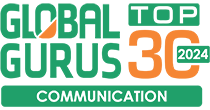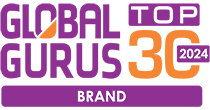How to Identify and Avoid Common Phone Scams
April 22, 2021

Phone scammers use all kinds of tactics, but the end goal is always the same: they want you to give them your money. If someone suspicious calls claiming to represent a company, we recommend using a reverse phone lookup and an online search of the company’s name. Type the name or the name of their service or product with the word “review” or “scam” into your search engine of choice. Reverse lookup might show someone has reported the company as a fraud.
Government Agencies Don’t Make Threats
One common scam is where someone calls and claims to represent a government agency. They tell you that you owe money in tax or other debt and threaten to fine or arrest you unless you make payment at once. However, the government doesn’t threaten people – this is a scam. You should never give out personal information, even to people who say they represent law enforcement or the SSA.
Whatever You do, Don’t Send Cash
Don’t ever transfer or wire money, put money on a gift card, or use a money transfer app to send money to someone you don’t know in real life. If you do this, you will probably never get your money back, even if the scammer is caught.
The Pressure is On
A legitimate company making an offer won’t force you to make a decision right away. It’s probably a scam if the caller keeps telling you that it’s a limited-time offer and you need to act now.
The Lottery Scam
The criminal might say you were chosen for a prize or have won the lottery. They will also likely ask you to pay to get your prize or your winnings.
Promises, Promises
A scammer may also promise you a job, a mortgage, debt relief, a loan, or a line of credit. All you need to do to get it is make a “small” upfront payment.
Don’t Cash Checks
Almost a month can go by before a bank detects a fake check. If the check is fake and bounces, the bank will charge you a penalty.
Avoid Free Trials
Scammers can also use offers of free trials to get people to sign up for services or goods and start sending them bills after the free trial is over. Moreover, they don’t tell them when the free trial will end or how to cancel it. Look at your bills carefully to make sure there are no additional charges on them.
Recorded Sales Pitches are not Legal
What’s more, scammers often pitch fake products. Importantly, you should never follow instructions to press a number or another button on your phone to “be removed from this list.” You can report scam attempts for free at ftc.gov/scams. Make sure you register with the National Do Not Call Registry as well. This can be done by phone or online. If you’re still receiving calls from telemarketers after that, it’s a scam. Reputable companies don’t call any numbers on this registry.
Block Unwanted Calls
To stop getting unwanted calls, you can use third-party apps that get information from “blacklist” databases to identify calls that are probably spam. What’s more, many cell phones have built-in features and functions to identify possible spam calls or block calls from certain numbers. The list might need to be managed in some cases. Few people who’ve used these apps have reached the limits on the numbers they can block. They are quite high.

























